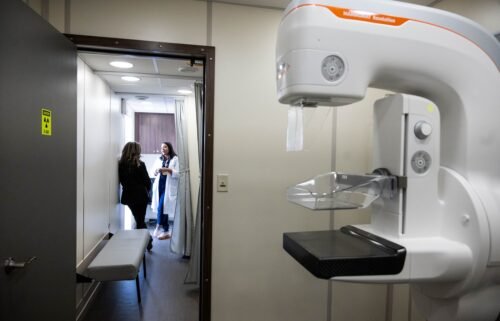DEA again extends telemedicine flexibilities

The United States Drug Enforcement Administration has extended flexibilities regarding medications providers can prescribe via telehealth.
By Kristen Rogers, CNN
(CNN) — With a November cutoff looming, the United States Drug Enforcement Administration has for a second time extended temporary rules allowing prescription of controlled medications via telehealth.
These rules, established during the Covid-19 pandemic, are an exception to the conditions of a law known as the Ryan Haight Act, which require at least one in-person medical examination before a doctor can prescribe a controlled medicine, including stimulant medications for attention-deficit hyperactivity disorder, benzodiazepines for anxiety, and drugs for opioid use disorder, sleep or pain, said Dr. Shabana Khan, chair of the American Psychiatric Association’s Committee on Telepsychiatry, in a previous interview with CNN.
As the pandemic public health emergency that allowed for the exception neared its May 11 end date, the DEA received more than 38,000 public comments on two proposals designed to keep some flexibility in the telehealth framework moving forward, Khan said. The proposals would allow telehealth practitioners to prescribe one 30-day supply of buprenorphine — a medication for opioid use disorder — or Schedule III-V non-narcotic controlled medications, without doing an in-person exam first. A patient would have to do an in-person exam before the second prescription of either type of medication, according to those proposals.
The DEA and the Substance Abuse and Mental Health Services Administration announced May 9 that the temporary rules would be extended through November 11, while the DEA and HHS considered the public comments and any revisions to the proposals — buying more time for telehealth patients who might have otherwise experienced a disruption in care.
Now, after holding two days of public listening sessions on the rules in September, the DEA and HHS have further extended the flexibilities through December 31, 2024.
Some medical organizations have praised the decision.
American Medical Association president Dr. Jesse M. Ehrenfeld said in a news release that the organization is “grateful the DEA recognizes patients being treated with these medications … often have challenges securing and traveling to in-person appointments, and that the agency is committed to avoiding lapses in their care.”
The latest extension also applies to all patient-practitioner relationships conducted over telehealth, not just those started before, or on, November 11.
“We are thrilled that the DEA is taking such a thoughtful and thorough approach to creating the right rules around the prescription of controlled substances,” said Kyle Zebley, senior vice president of public policy at the American Telemedicine Association, in a news release. “This is a critical issue for millions of individuals and their families, as well as clinicians wanting to provide care to their patients, wherever and whenever they need it.”
The-CNN-Wire
™ & © 2023 Cable News Network, Inc., a Warner Bros. Discovery Company. All rights reserved.



